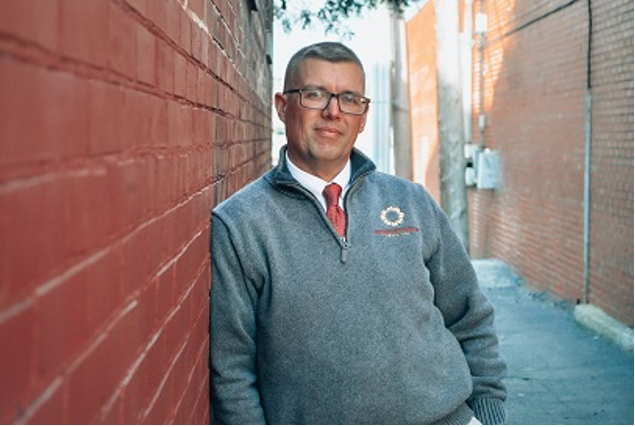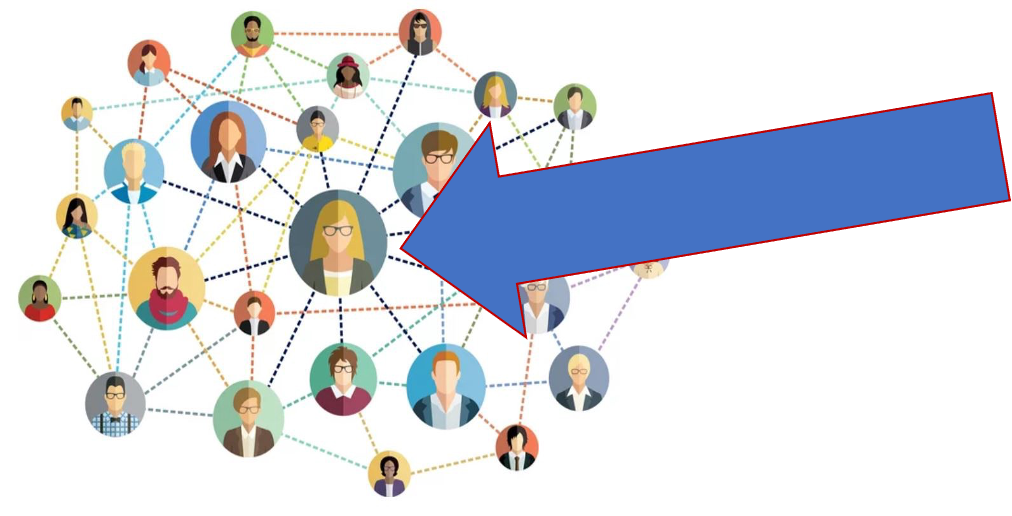
Hello, I am Matt Feldmann with Goshen Education Consulting and I propose that acting selflessly pays dividends in unlikely ways. Essentially, if you adopt the golden rule and perform acts of kindness for others, you will reap big benefits in the future. I call this Networking Karma. As the owner of a small business evaluation firm, I focus on this idea and believe it is responsible for my current success and will lead to future prospects. This is not just a hokey, contrived, feel good idea…it is based on social networking theory and is a major topic for books on self-help, marketing, and business development.
All of this connects back to Karma, or the principle of cause and effect where intent and actions of an individual (cause) influence the future of that individual (effect). Your good deeds today will reap rewards in the future.
Below are some examples of Networking Karma in action:
- Lead a book group with your local evaluation affiliate.
- Offer to write an evaluation plan (pro bono) for a prospective client.
- Do some of the “hard” quantitative work for a colleague without those skills.
- Recommend a colleague for a job that they are better able to perform.
Thanksgiving is next week, so this topic is extra relevant. Go do some good deeds, make friends, and you will see how the opportunities line up for you in the future.
Lessons Learned
Consider social networking theory, or the general idea that your acts of kindness have direct and indirect impacts on those around you, which serves to strengthen your social bonds. When you go out of your way to help a colleague with a new project without any expectations in return, you have created a strong connection with that person who is likely to remember you for an opportunity in the future. By continuing to conduct these acts of kindness you put yourself in the center of a network of others who interact with one another.

Hot Tips
- Be a Connector. Through developed relationships, you may find yourself as a Connector. Malcolm Gladwell refers to Connectors as individuals who link people together. By linking others together and helping your colleagues without any expectations, your good will has positive impacts on others. Through unexpected ways your acts of goodwill, will return to as opportunities in the future.
- Social Arbitrage. As Keith Ferrazzi suggests in his book, when you work within your network of colleagues, clients and co-workers to become indispensable you become the person everyone turns to for that special thing you do….whatever that is.
- Don’t keep score. Another Keith Ferrazzi suggestion…This is critical. You must give of yourself without any direct expectations or a “return on investment.” If you expect others to return favors, you have engaged in a transaction and your act of kindness is…well…no longer kind.
Rad Resources
- IC Topic Chats. If you want to learn more about this topic and others you can join our Independent Consulting Topic Chats on Thursday at noon ET. You also can watch my YouTube video on Networking Karma.
- Check out Keith Farrazzi’s and Tahl Raz’ book, Never Eat Alone.
- If you have not read it yet, you really should read Malcolm Gladwell’s blockbuster book, The Tipping Point. It is really good.
- Check out this related story from NPR that supports Networking Karma.
Do you have questions, concerns, kudos, or content to extend this aea365 contribution? Please add them in the comments section for this post on the aea365 webpage so that we may enrich our community of practice. Would you like to submit an aea365 Tip? Please send a note of interest to aea365@eval.org . aea365 is sponsored by the American Evaluation Association and provides a Tip-a-Day by and for evaluators. The views and opinions expressed on the AEA365 blog are solely those of the original authors and other contributors. These views and opinions do not necessarily represent those of the American Evaluation Association, and/or any/all contributors to this site.

Dear Mr. Feldmann,
I am a student in a masters program at Queens University currently taking a Program Inquiry and Evaluation course. As part of an assignment we were to peruse the articles posted on the AEA 365 site and reach out to an author. I chose your article on Networking Karma. I found the thesis of your article, acting selflessly pays dividends in unexpected ways, resonated with me and was interested to read how you applied this to the field of program evaluation.
I was relieved to see that your recommendation, to accumulate good Networking Karma was based upon providing service to clients and colleagues free of charge rather than associated with the evaluation services you provide at your consulting firm. By separating the acts of kindness from the paid services you provide your argument became more principled and compelling.
I was pleasantly surprised to see that you included the recommending the service of colleagues to jobs that they are better able to perform and found that this specific example, the diversion of paid work to others made the benefits of your altruistic stance persuasive. This recognition and endorsement of the expertise of colleagues would likely instill confidence in potential clients who would be assured that your organization would only take on projects that would match the skill set offered by your team. It highlights to potential clients that the fee for services provided is not the only motivation at work, and that their satisfaction with the work is of importance to your firm even if they are not the ones to be paid for the work. Additionally, it would foster a mutually beneficial relationship with colleagues who would feel comfortable diverting work to your firm when it was warranted. This stance was further reinforced by your tip, don’t keep score, which ensures that your relationships with colleagues do not become transactional.
It was a pleasure to encounter a rational and persuasive exposition of the importance of kindness in one’s business practices.
Sincerely,
Heidi